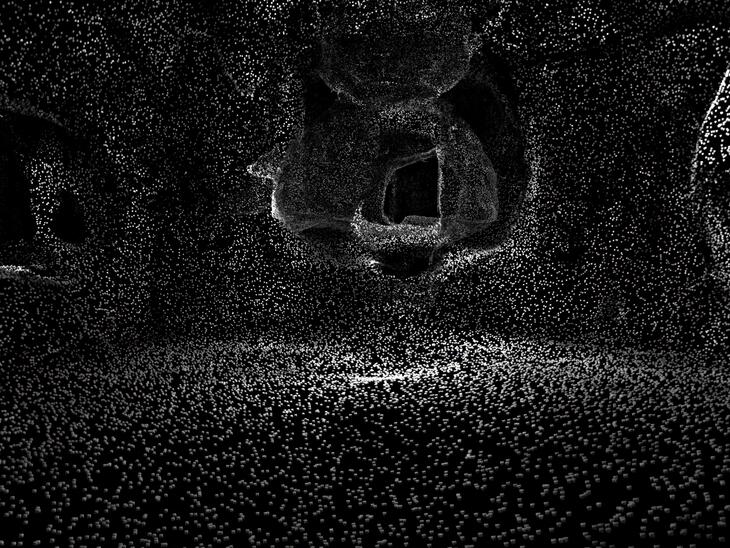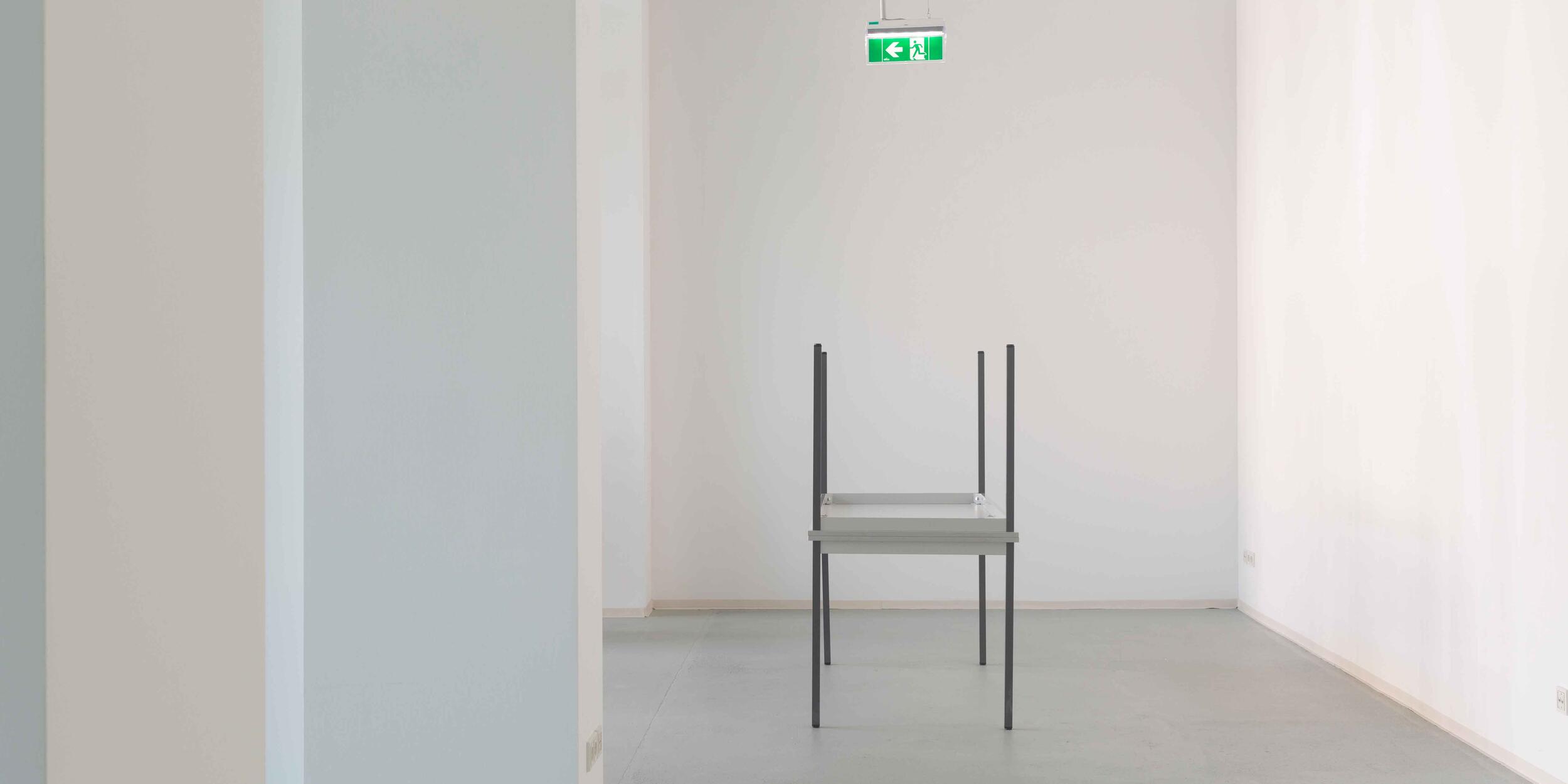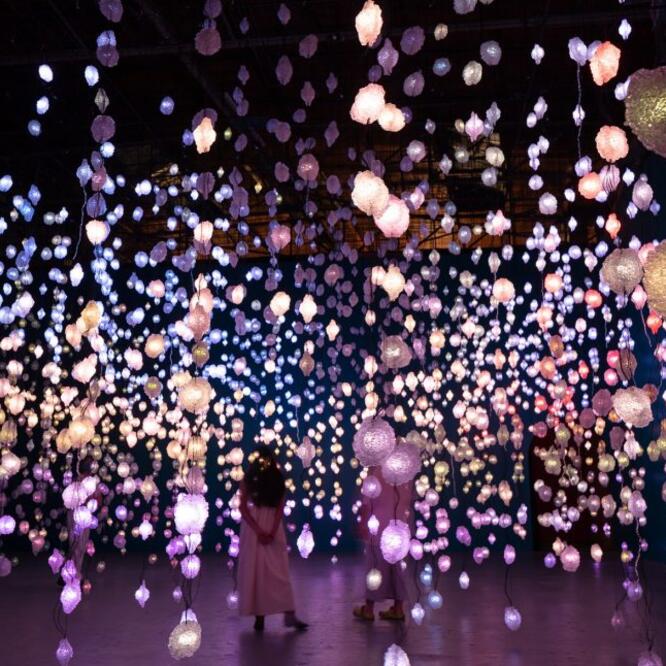
+++ Study Information Days 2026 for many of our studies: all dates can be found in the event calendar! +++

The Salzburg Open Arts Programme is an experimental course in free art that explores the area of inter-, trans-, cross-, multi-, and undisciplinarity as an independent artistic and theoretical field. How we understand this space is inextricably linked with the way in which we encounter the diverse realities of the world. In a climate of respectful communication, constructive engagement and transfer - in artist studios, lectures and guest talks - the programme negotiates the space emerging between disciplines, between academia and the arts, and between the individual and society.
Institute for Open Arts
+43 676 88122 461
joletta.de_smedt@moz.ac.at
Franz-Josef-Straße 18
5020 Salzburg
Department of Studies & Examinations
+43 676 88122 492
studienabteilung@moz.ac.at
Length of course
4 semesters / 120 ECTS-AP
Language of instruction
German
Application period
1.2.–28.3.2025
Entrance examinations
2.-6.6.2025
Overview of all dates
Downloads
At the heart of the master's programme is students' artistic practice, which is co-supervised and mentored by lecturers across the Mozarteum University. The master’s programme is therefore open to students from all academic fields and social backgrounds who strive to transcend disciplinary boundaries in their artistic practice, position their work in relation to the social ecological and technological challenges of our time, and seek forward-thinking, sustainable new pathways.
Dates for online course guidance
06.02. 14:00-15:00 Uhr
12.02. 11:00-12:00 Uhr
18:02. 17:00-18:00 Uhr
24.02. 10:00-11:00 Uhr
05.03. 08:00-09:00 Uhr
12.03. 20:00-21:00 Uhr
18.03. 12:00-13:00 Uhr
26.03. 15:00-16:00 Uhr
Click here to participate in the Meeting via Zoom
(Meeting-ID: 633 7485 0532 / Kenncode: 703120)
Contact: claudia.lehmann@moz.ac.at
Since the Salzburg Open Arts Programme is, by its very nature, an inter-, trans-, multi- or even undisciplinary course, it is open to students from all artistic and academic fields. We welcome applications from those who seek to transcend disciplinary boundaries in their artistic practice and look to the future as they open up sustainable new pathways.
The programme fosters the development of an individual artistic practice across disciplinary boundaries, strengthens students' ability for critical reflection and self-reflection and encourages the discovery and development of new fields and forms of expression in art.
The course is centred around the experimental and interdisciplinary field of art, academia and society. This qualifies students for the exploration of arts and areas that are newly emerging or are expected to develop in the course of the social, ecological and technological change.
Students can also use the master's programme as preparation for an artistic or academic doctorate.
The curriculum is competence-orientated. After completing the master's programme in Open Arts, students should:
The course of study extends over four semesters, during which students work continuously on their projects. These may already be components of the master's project. They receive individual supervision and support.
The course is designed to be open, non-hierarchical and collective. Courses can be attended by external interested parties if capacity allows and are held in English and German.
The application process for the MA Open Arts is structured as follows:
The following documents must be uploaded as part of the online application:
Applicants must also upload a portfolio (as a PDF document) containing the following:
The work/documents must be digitised (scans, photo, etc.) and uploaded as a single PDF document with a cover sheet (photo, name, date of birth, address, telephone number, school-leaving qualification, email and details of previous vocational training, date and signature). Only one upload will be accepted (PDFs should be merged to create a single document). The maximum file size is 25 MB.
Online interview, workshop and on-site interview
Part 1: Online interview
Those whose portfolio has been positively assessed will be invited to an online interview with the examination panel, in which the applicant will present themselves and their project.
If the candidate passes the online interview, an invitation to the entrance exam in Salzburg will be issued.
Part 2: Workshop and on-site interview
Candidates will be given tasks to be completed both individually and together with other candidates.
Candidates will be required to contextualise their projects/their practice under new aspects of Open Arts (approx. 15 minutes). They will also meet the examination panel for a short interview (approx. 10 minutes) on motivation, background, previous studies, expectations and career prospects.
Examination requirements: The on-site entrance examination consists of several practical parts (e.g. in the areas of originality, impulse generation and reflection). In addition, conceptual skills, an awareness of the artistic positioning of projects and the ability to contextualise in relation to social, artistic and academic fields of action will be assessed in an interview with the examination panel.
Accessibility and widening participation
Please note that the Mozarteum University Salzburg offers various support options at the time of your audition and during your studies if you have a disability or a chronic illness.
If this applies to you and you would like to take advantage of counselling, please contact Claudia Haitzmann: claudia.haitzmann@moz.ac.at or +43 676 88122 337.

I would like to believe that art can change the world.
— P. Rist